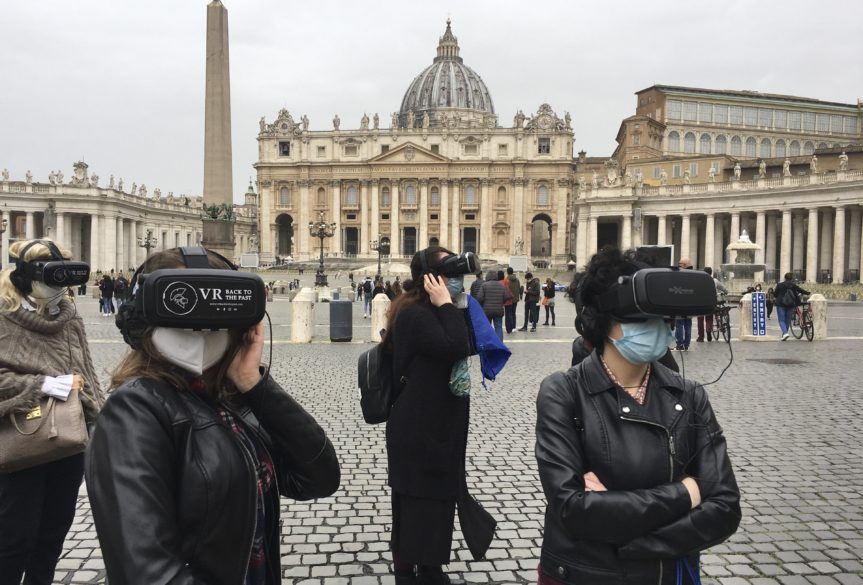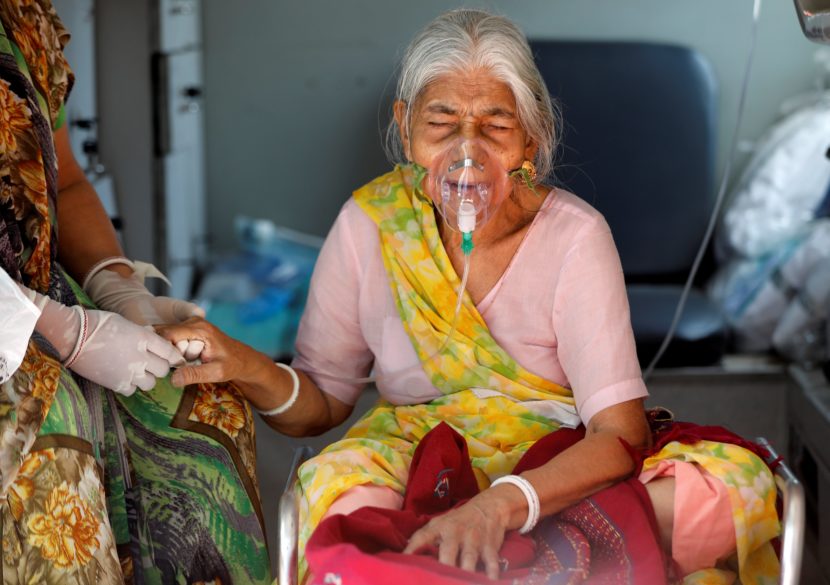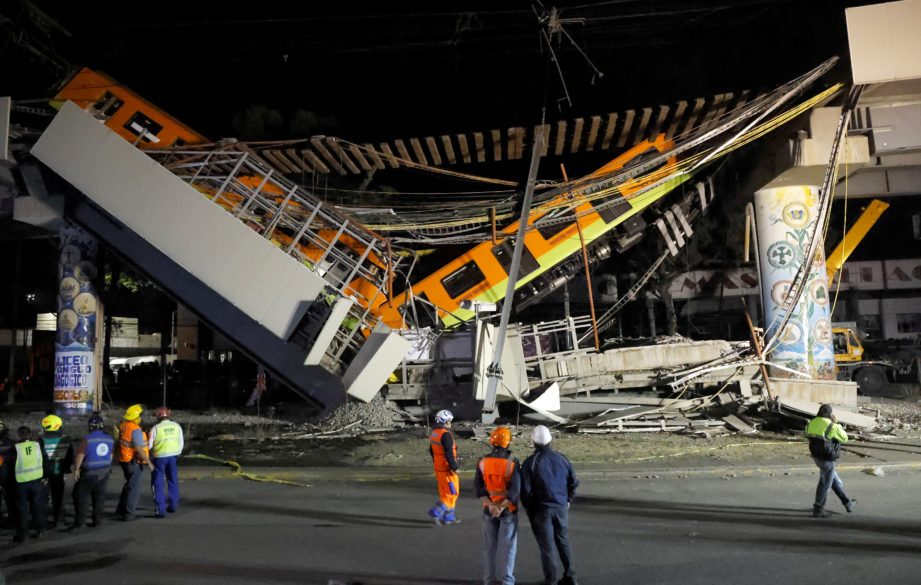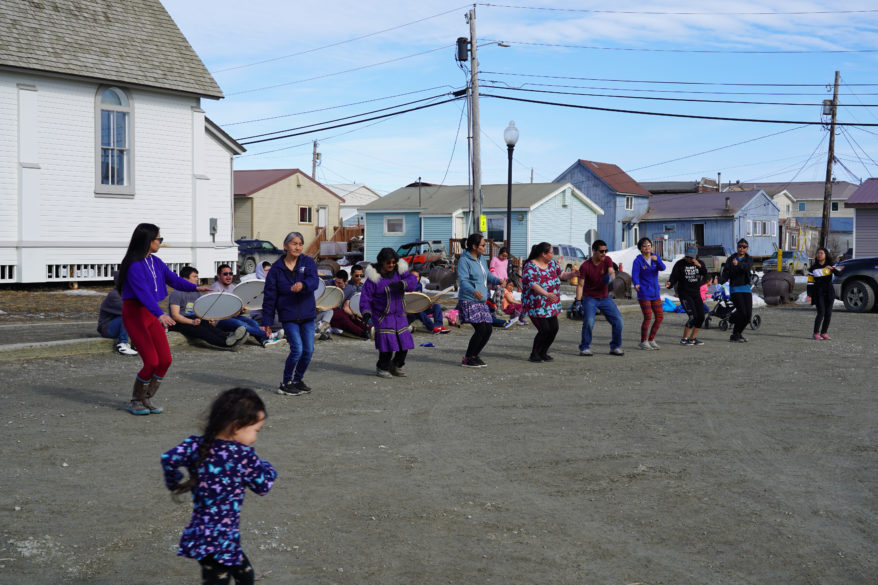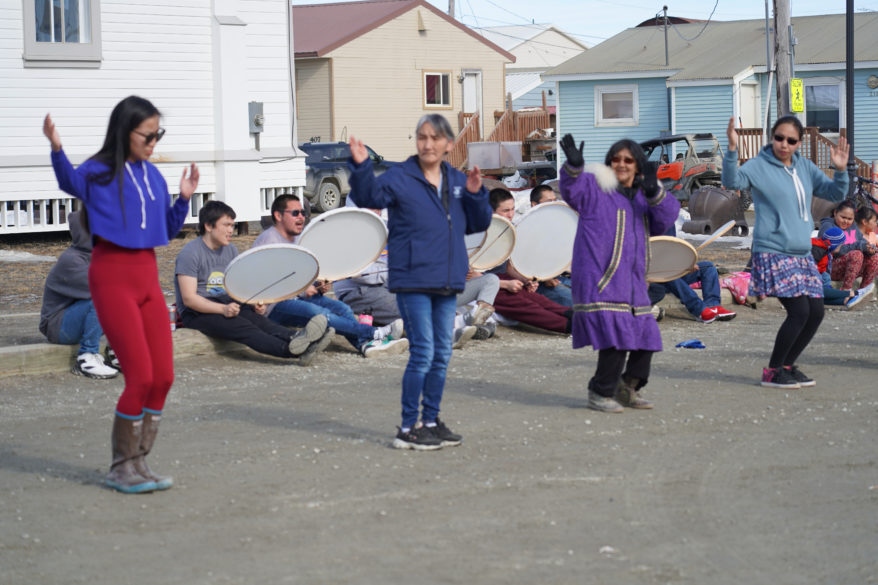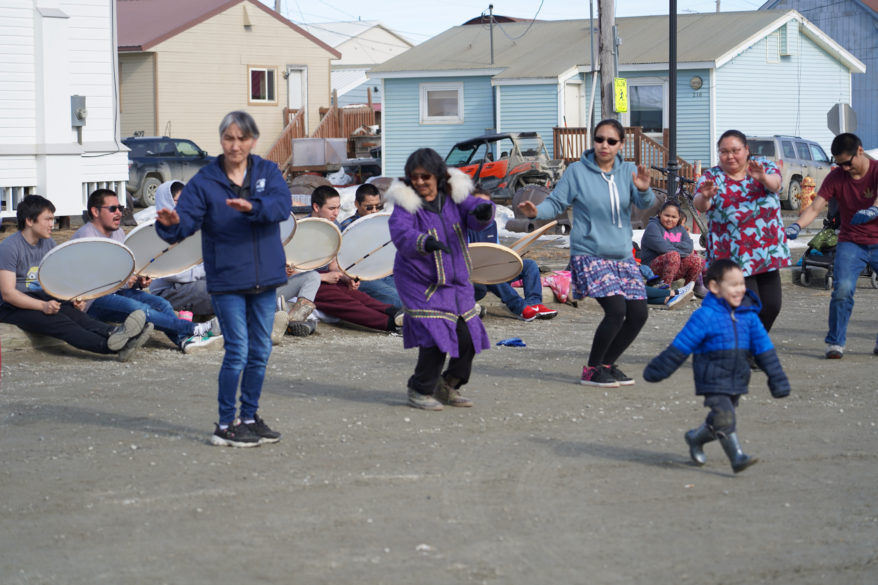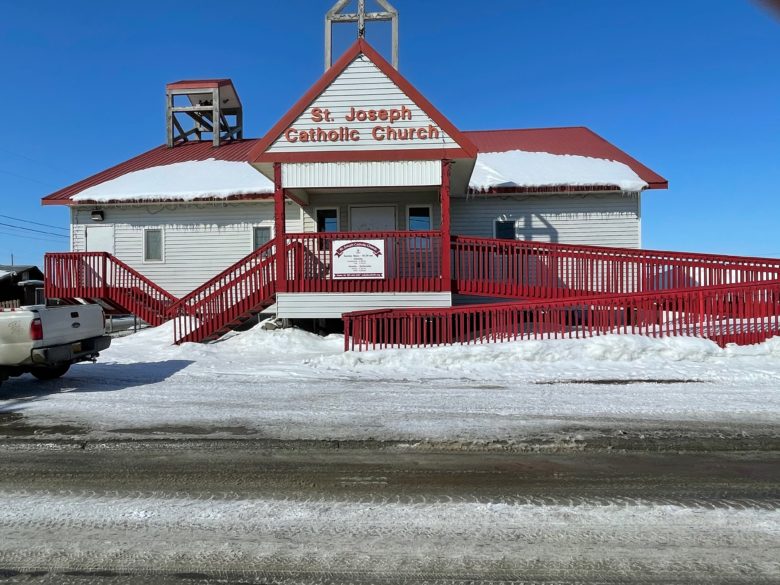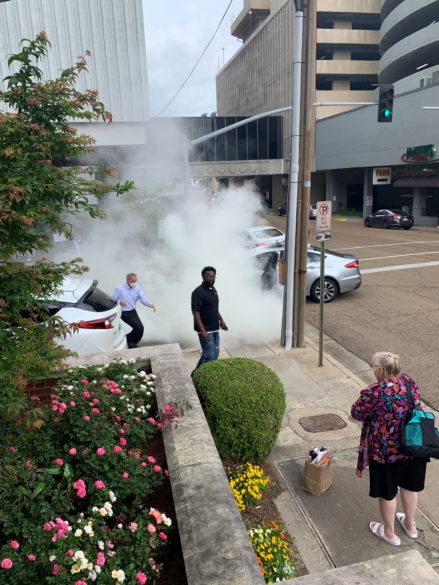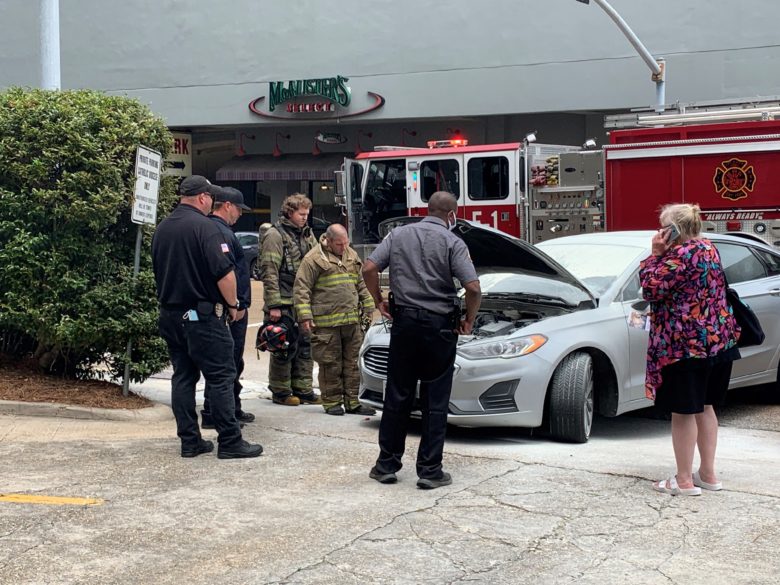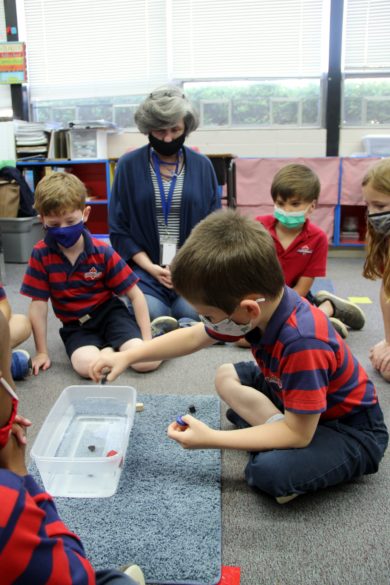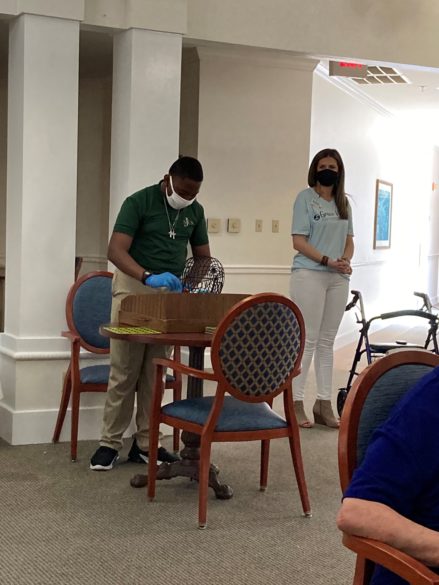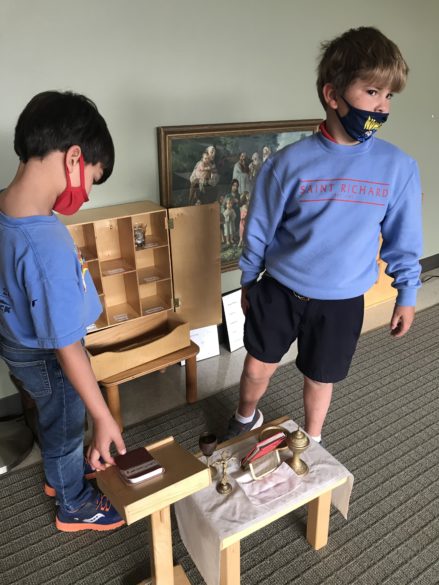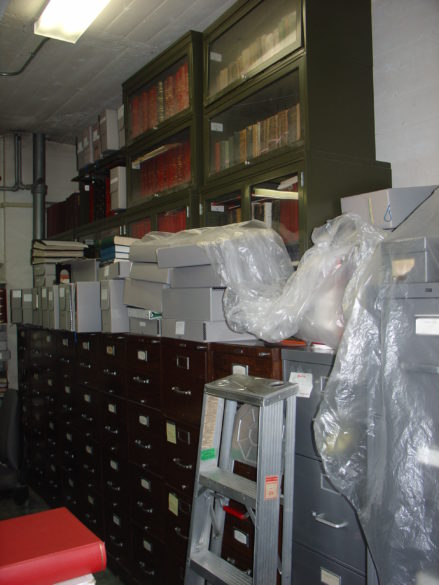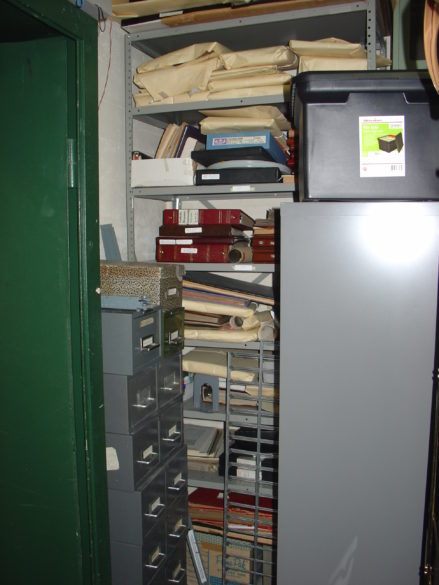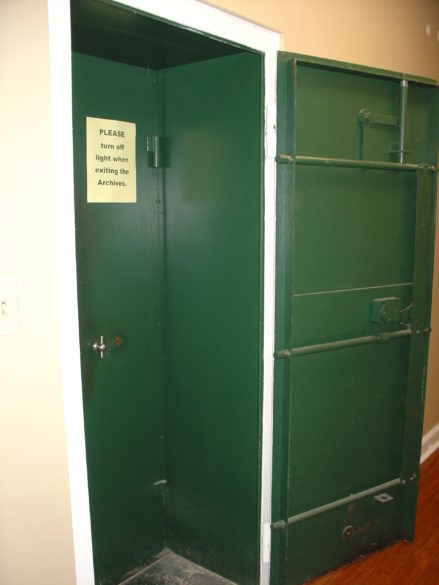Francesco
By Sister Hosea Rupprecht (CNS)
Award-winning documentarian Evgeny Afineevsky (“Cries From Syria”) issues a call for action with his film “Francesco” (Discovery+).
The unspoken summons comes through allowing viewers to witness the influence one man, Pope Francis, has succeeded in having over the many social and other issues of our time.
Rather than present a linear biography, the movie takes its form from the Holy Father’s own agenda. As depicted here, the pontiff’s primary goal is to bring the message of human dignity to the world by shining a light into some of the darkest corners of the globe, where political, social, economic and religious injustices have taken – and, in some cases, are still taking – place.
Afineevsky, for instance, brings his audience to the Philippines, ravaged by Typhoon Haiyan in 2013, as Francis talks about climate change and the call to protect our common home.
The plight of refugees is highlighted through the pope’s visit to Lampedusa, a modern-day Ellis Island in the Mediterranean Sea through which thousands of Tunisian and Libyan migrants have passed, fleeing political upheaval in their home countries. The passage from the North African coast to Lampedusa is considered one of the world’s deadliest migration routes.
The pontiff also visits the island of Lesbos in Greece to which many Syrian migrants fled in the wake of their nation’s civil war. One interviewee calls the Syrian refugee situation “the greatest humanitarian crisis since World War II.” Pope Francis not only gave words of comfort to refugees – he followed them up with action, sponsoring the immigration to Italy of three Muslim families.
“Francesco” also address other hot-button topics such as clergy sexual abuse, homosexuality and the building of walls between peoples.
Where does the pontiff get the inspiration to do all he does? Afineevsky takes us back to the life of young Jorge Bergoglio, especially stressing the influence that his grandmother, Nonna Rosa, had on his growing faith and spirituality.
From his decision to become a priest, to joining the Jesuits, to becoming the archbishop of Buenos Aires and a cardinal, Pope Francis has been consistent in his action on behalf of others. In other words, the film shows that what Francis has done since his 2013 election to the papacy is just a continuation of what he had done up to that time.
With a running time just under two hours, “Francesco” is quite long for a documentary. The film contains mature themes and some scenes of war violence. The Catholic News Service classification is A-II – adults and adolescents. Not rated by the Motion Picture Association.
(Sister Rupprecht, a Daughter of St. Paul, is a guest reviewer for Catholic News Service.)
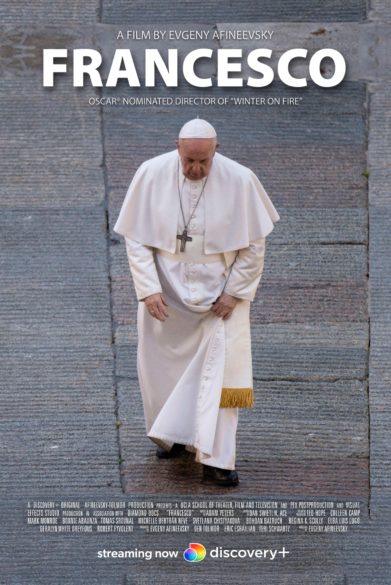
“Fatima” – condemned to death and the Scrutiny of Life
Theology at the movies
By James Tomek, Ph.D
Seventeenth Century philosopher Blaise Pascal describes the tragedy of the human condition. Imagine that we are in a prisoner room of people and each day a guard comes in and picks one of us to be executed. That is our fate – we know that one day our turn will come. Our tragedy is not that we will die, but that the thought of death will cause us to seek divertissement so as not to think about what life is.
Marco Pontecorvu’s 2020 film “Fatima,” about the apparitions of the Blessed Mother to three peasant children, starts with a weekly roll call of dead soldiers in the 1917 war torn town of Fatima, Portugal. “Fatima” is a Pascalian answer to Jessica Hausner’s 2012 film “Lourdes.” Mary, appearing to Lucia and her cousins Jacinta and Francisco, is asking them and us to pray for peace. In this review, I will establish a comparison of the two films, highlight Fatima’s emphasis on prayer, and conclude with an answer to the Lenten scrutiny of life and what it might mean to be religious.
“Lourdes” concentrates more on the miracle healing aspect of religious prayer while Pontecorvu’s film focuses on the need for prayer, in general, to promote peace. “Fatima” takes place in 1917 Portugal, at war with Germany and guided by a recently secular government. This is Pascal country. The film is framed by a 1980s’ interview of Lucia by a professor who wonders why God would choose to speak to a common farm girl. This frame establishes Lucia as a sane, intelligent, and witty person who can be believed. However, is she a “seer” who has “prophet” status? Some peasants visit Lucia’s home to be a witness of the “seer.” A “seer” is a prophet who can see the truth in certain situations. Our biblical prophets sometimes predict futures, but their real message is the truth of the times that they are witnessing, especially the social injustices. “Lourdes” focuses on the reality of the miracle and how to pray when afflicted with a malady. Fatima goes elsewhere.
While the crowds of peasants in Fatima are looking for some miracle in their lives, the film concentrates more on Mary’s insisting that they pray for peace. The historical sections of the film show how the children have to stand up to the protests from their parents, church, and government, always with the background of the repeated roll calls of the dead and missing.
Lucia’s mother, Maria Rosa, is the strongest character. She is the most educated in the family and the most skeptical, insisting that Lucia recant her story so as not to have her be seen as crazy. The country has recently become a republic with a wish to have a secular government. Thus, the children are confronted by the priest, then the mayor, then the bishop and finally a government psychologist who pressure them to recant their positions so that the country will remain more at ease in a secular environment.
While the mother is pictured as an antagonist, we see that she really does love and support her daughter. The film sticks to reality. The original theme of “1917 Fatima,” of praying for the conversion of Russia, has been replaced/updated to a general prayer for peace and social justice. This air is seen in the beginning when Lucia has a vision of a woman in a cave who calls herself the Angel of Portugal. This premonition will be transformed into a vision of the Virgin Mary later. She is still simply dressed. These visions could be general “feelings,” but are they not still miraculously showered on the young Lucia in the form of heavenly Mariological signs?
My mother and I would have deep religious conversations. I remember her mentioning an apparition of the Blessed Mother in Medjugorje, Yugoslavia. I responded that I did not believe in that “junk” (I used a heavier word). To which she got angry. But, a few weeks later, she called me asking for my advice on some matter because she said that I was more religious than she. I realized that believing in so called apparitions really had nothing to do with being religious to her (no way I was more religious than she was for sure). I was like the skeptical mother of Lucia talking to my mother about the Blessed Mother.
We are all in that roll call of the dead and will be reported dead sooner or later. Can this thought bring us to think about what is important? That is the third scrutiny of Life that catechumens go through during Lent (5th Sunday and the Lazarus reading) – and also the theme of the recent Divine Mercy Sunday. The film opens with a vision of the Angel of Portugal, the Angel of Peace to Lucia in a cave. We hear the bombings of a plane. The angel says that they just don’t seem to want to stop. I pray the rosary frequently. Why? We have the persecution of African Americans and now Asian Americans, not to mention all the violence done by haters to those of different faith traditions. They just don’t seem to want to stop.
(James Tomek is a retired language and literature professor at Delta State University who is currently a Lay Ecclesial Minister at Sacred Heart in Rosedale and also active in RCIA at Our Lady of Victories in Cleveland.)

